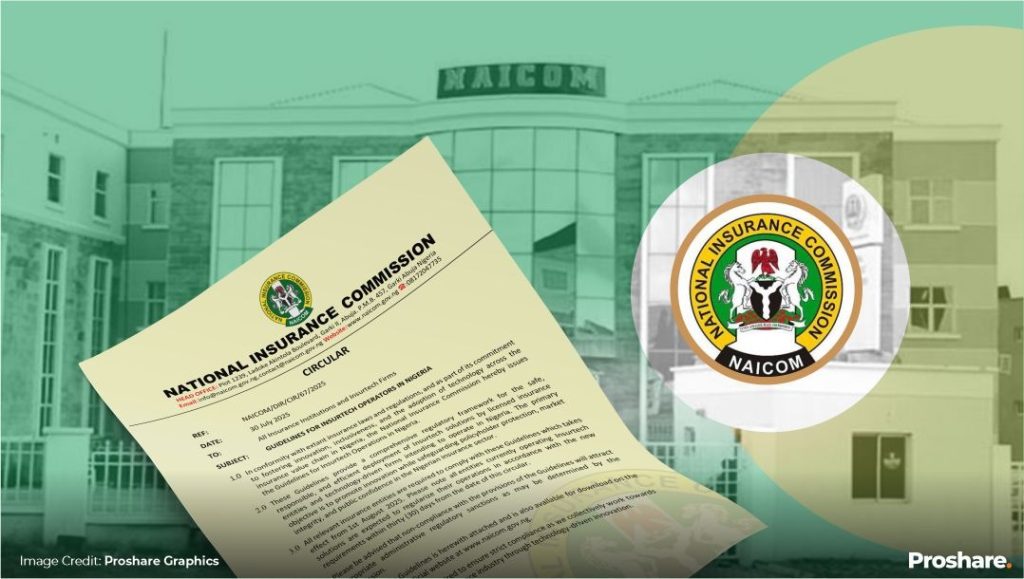Nigerian Insurance Act introduces stiffer penalties against fake operators

Nigerians who buy insurance can now expect stronger protection, as the newly signed Nigerian Insurance Industry Reform Act (NIIRA 2025) introduces stiffer penalties against fake operators.
The new insurance law also makes insurance compulsory for many everyday risks.
Signed into law by President Bola Tinubu on August 5, the legislation seeks to clean up the industry and stop quacks from exploiting people.
It also ensures that buildings, businesses, and even government assets are better protected against accidents, fires, and disasters.
Under the new law, anyone operating an insurance business without a licence faces a fine of N25 million, imprisonment for up to two years, or both.
Companies caught in the act will have their principal officers each pay N50 million or serve a two-year prison term.
The law also places fresh obligations on builders and landlords. No one is allowed to construct a building above one floor without first taking out insurance against construction risks.
Public buildings, such as schools, hospitals, hostels, and shopping centres, must also be insured against fire, collapse, storms, or floods. Failure to do so carries penalties of up to N1 million or a year in jail for defaulters.
The Act goes further to require insurance for petrol and gas stations, as well as tankers transporting fuel, to cover third-party damages in case of explosions or accidents.
Certificates of insurance must be displayed openly at filling stations or attached to fuel consignment documents.
To boost emergency response, the law also establishes a Fire Services Maintenance Fund, financed through contributions from insurers, to provide equipment and grants to firefighting institutions.
Importantly, the federal government is also required to lead by example: all government assets and employees must now be insured, with NAICOM empowered to decide the risks to be covered.
Analysts believe the reform could deepen insurance penetration in Nigeria, which currently remains one of the lowest in Africa, and give citizens more confidence that, in the event of a disaster, they will receive compensation and support.
Mr Akinjide Orimolade, Chief Executive Officer of Stanbic IBTC Insurance, in an interview with the News Agency of Nigeria (NAN), commended President Bola Tinubu for assenting to NIIRA 2025.
He said the introduction of compulsory insurance policies was a step in the right direction, capable of boosting penetration, revenue, and government earnings through taxes.
“Insurers must now step up public awareness because people need to understand the benefits.
“The premiums involved are not significant. They are affordable,” he said.
Orimolade further described the Act as “robust,” particularly with its recapitalisation framework for various insurance categories.
Also, Mr Ademola Abidogun, Managing Director of Guinea Insurance Plc, expressed optimism that the reforms would reposition the sector for sustainable growth and development.
He said the industry was ripe for increased capital to enable operators to carry risks more effectively.
“When people are made to do the right thing regarding compulsory insurance and the sanctions against unlicensed operators, it will improve the economy, strengthen insurance companies.
“This is in terms of return on investment, and support the 10-year plan to spread insurance across the country,” Abidogun added.
Mr Moruf Apampa, Chief Executive Officer of NSIA Insurance, said the law’s provision to fine unlicensed individuals in the industry was a landmark move.
He described it as a “game-changer” that would eliminate quacks, restore public trust, and protect consumers from fraudulent activities.
Apampa also welcomed the requirement for landlords and owners of public buildings to insure their properties, describing it as progressive and vital in urban centres where fire outbreaks and building collapses are common.
“The enforcement of this, along with other compulsory insurance policies like third-party motor, is a central pillar of the Act’s strategy to deepen the market,” he said.
The post Nigerian Insurance Act introduces stiffer penalties against fake operators appeared first on Vanguard News.

 yarkarkara
yarkarkara 





